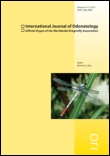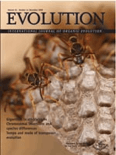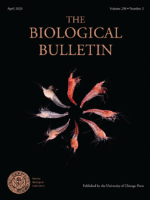
MOLECULAR ECOLOGY
metrics 2024
Pioneering Research in Ecology and Evolution
Introduction
MOLECULAR ECOLOGY is a premier journal published by WILEY, dedicated to the dissemination of cutting-edge research in the fields of ecology, evolution, and genetics. Established in 1992, the journal has rapidly ascended to prominence, currently holding a Q1 ranking in both Ecology, Evolution, Behavior and Systematics as well as Genetics for 2023. With an impressive Scopus ranking of #54 in the Ecology and Evolution category and #65 in Genetics, it is clear that MOLECULAR ECOLOGY is recognized for its contributions to the scientific community, boasting a high percentile ranking of 92nd and 81st, respectively. While the journal does not currently offer open access options, it remains an indispensable resource for researchers, professionals, and students seeking to explore the molecular underpinnings of ecological and evolutionary processes. Published regularly until 2024, this journal serves as a vital platform for advancing our understanding of biodiversity, species interactions, and genetic variability. With its rigorous peer-review process and commitment to excellence, MOLECULAR ECOLOGY continues to shape the landscape of molecular biological research.
Metrics 2024
 1.71
1.71 4.50
4.50 5.40
5.40 255
255Metrics History
Rank 2024
Scopus
IF (Web Of Science)
JCI (Web Of Science)
Quartile History
Similar Journals

HUMAN MOLECULAR GENETICS
Charting new territories in clinical genetics.HUMAN MOLECULAR GENETICS, published by Oxford University Press, is a premier journal in the field of genetics, with an established reputation since its inception in 1992. With an impressive Q1 ranking in various categories, including Genetics, Clinical Genetics, and Molecular Biology, this journal engages a diverse readership by reporting significant advances in our understanding of the genetic basis of human health and disease. The journal has achieved notable rankings within Scopus, particularly in Clinical Genetics, making it a key resource for professionals and researchers aiming to stay at the forefront of genetic research. Although it operates under a traditional access model, it remains committed to disseminating high-quality research that informs clinical practice and enhances knowledge in the genetic field. The journal's impact factor signifies its crucial role in shaping contemporary genetic research and its application in medicine. As the field continues to evolve, HUMAN MOLECULAR GENETICS serves not only as an academic repository but also as a vital platform for innovation and discussion among students, researchers, and clinicians.

INTERNATIONAL JOURNAL OF ODONATOLOGY
Advancing Research in Dragonfly and Damselfly EcologyINTERNATIONAL JOURNAL OF ODONATOLOGY, published by Wachholtz Verlag GmbH, is a vital resource for researchers and professionals in the fields of Ecology, Evolution, Behavior, and Insect Science. Established in 1998, this journal provides a platform for the dissemination of innovative research pertaining to odonatology, encompassing the ecological and biological interactions of dragonflies and damselflies. With its focus on advancing knowledge within these scientific disciplines, the journal holds a commendable Q3 ranking in Ecology, Evolution, Behavior and Systematics and a Q2 ranking in Insect Science for 2023, reflecting its significance in academic circles. Although it operates without open access, its articles are accessible through institutional subscriptions, allowing for wide dissemination among scholars and practitioners. The journal's commitment to publishing high-quality, peer-reviewed research makes it an authoritative source of information that enriches the study of odonates and their broader ecological contexts. For inquiries, the journal's editorial team can be reached at C/O Fleet7, Fleethorn 7, Kiel 24103, Germany.

Evolution Letters
Unlocking the mysteries of life through open access research.Evolution Letters is a premier Open Access journal published by Oxford University Press, dedicated to advancing research in the interdisciplinary fields of Ecology, Evolution, and Genetics. Since its launch in 2017, this journal has rapidly established itself as a leading platform for high-quality research and innovative studies, as reflected by its impressive Q1 quartile rankings in both Ecology, Evolution, Behavior and Systematics and Genetics for 2023. With a remarkable Scopus ranking placing it in the top 3% in its categories, Evolution Letters serves as a vital resource for scholars and practitioners seeking to understand the complexities of evolutionary processes and genetic developments. The journal’s commitment to Open Access ensures that groundbreaking research is freely available to the global scientific community, fostering collaboration, discovery, and progress in these critical fields of study.

JOURNAL OF EVOLUTIONARY BIOLOGY
Connecting the Dots of Evolution and BiodiversityJOURNAL OF EVOLUTIONARY BIOLOGY, published by Wiley, is a prestigious, peer-reviewed journal that has served as a key platform for groundbreaking research in the field of evolutionary biology since its inception in 1988. With its remarkable Q1 status in the 2023 category of Ecology, Evolution, Behavior, and Systematics, the journal is recognized for its high-quality contributions and impactful findings, currently ranking 203 out of 721 in its category on Scopus, placing it in the 71st percentile. The journal covers a wide scope of topics, fostering discussions that advance our understanding of evolutionary processes and their applications, which is critical for researchers, academics, and students alike. While it does not offer Open Access options, subscribers can benefit from articles that explore diverse aspects of evolution and biodiversity. As the journal continues to evolve, it remains an essential resource for those keen on exploring the mechanisms of life’s diversity and adaptation.

EVOLUTION
Leading the Charge in Evolutionary BiologyEVOLUTION is a premier academic journal published by Oxford University Press, dedicated to the dynamic fields of evolutionary biology, ecology, and genetics. Since its inception in 1948, the journal has established itself as a leading platform for innovative research and critical analyses, achieving a remarkable impact factor that reflects its significance in the scientific community. EVOLUTION is consistently ranked in the Q1 category across key disciplines, including Agricultural and Biological Sciences, Ecology, and Genetics, making it a vital resource for researchers and practitioners alike. With an impressive Scopus ranking placing it in the 79th percentile for Agricultural and Biological Sciences and the 78th percentile for Ecology and Evolution, the journal is essential reading for those seeking to stay at the forefront of evolutionary studies. Although the journal does not currently offer open access options, it remains a crucial vehicle for disseminating cutting-edge research that influences the understanding of biological processes and their implications in diverse ecosystems. The commitment to rigor and excellence ensures that EVOLUTION continues to shape the discourse in evolutionary science and related fields.

EVOLUTIONARY ECOLOGY
Advancing Knowledge at the Intersection of Evolution and EcologyEVOLUTIONARY ECOLOGY is a prestigious academic journal published by SPRINGER, exploring the intricate relationships between evolutionary processes and ecological dynamics since its inception in 1987. As a key resource in the field of Ecology, Evolution, Behavior, and Systematics, the journal is recognized for its impactful contributions, holding a commendable Q2 quartile ranking in its category as of 2023. With an emphasis on empirical and theoretical studies that bridge evolutionary biology with ecological principles, EVOLUTIONARY ECOLOGY is essential for researchers, practitioners, and students aiming to deepen their understanding of biodiversity, adaptation, and ecosystem functioning. Although it currently does not offer open access, the journal maintains a commitment to disseminating high-quality research that influences both foundational knowledge and practical applications in the field. Located in the Netherlands, the journal continues to serve a global audience, making significant contributions to advancing ecological and evolutionary research through rigorous scientific discourse and innovation.

BIOLOGICAL BULLETIN
Unveiling the latest breakthroughs in biology.BIOLOGICAL BULLETIN is a premier journal published by The University of Chicago Press, catering to the vibrant field of Agricultural and Biological Sciences. Established in 1945, this long-standing publication has evolved to serve as a critical platform for disseminating cutting-edge research and insights across various biological disciplines. With a commendable impact factor and ranking in the top quartile (Q1) of its category, the journal is recognized for its rigorous peer-review process and its commitment to high-quality scholarship, ranking #74 out of 221 in the Agricultural and Biological Sciences category on Scopus. Researchers, professionals, and students will find a valuable resource in BIOLOGICAL BULLETIN, as it continually fosters scientific dialogue and innovation, ensuring the advancement of knowledge in the biological sciences. Although not openly accessible, the journal provides numerous access options for institutions and individuals wishing to engage with its content.

BIOLOGY BULLETIN
Fostering Innovation in Biochemistry and Beyond.BIOLOGY BULLETIN is a prominent academic journal published by PLEIADES PUBLISHING INC, dedicated to advancing the fields of Agricultural and Biological Sciences as well as Biochemistry, Genetics, and Molecular Biology. With an ISSN of 1062-3590 and E-ISSN of 1608-3059, the journal has been a vital resource for researchers and professionals since its commencement in 1996. Located in the United States, BIOLOGY BULLETIN operates within a highly competitive academic landscape, achieving a 2023 ranking in the Q3 quartile for Agricultural and Biological Sciences and Q4 for Biochemistry, Genetics, and Molecular Biology, highlighting its commitment to delivering impactful research despite its challenges. Researchers seeking to publish their findings will find a platform for significant insights, as reflected in its Scopus rankings, where it stands at #183 and #199 out of 221 in its respective categories, showcasing opportunities for growth and visibility. While currently not an open-access publication, BIOLOGY BULLETIN plays a crucial role in facilitating scholarly communication and fostering an understanding of biological sciences, making it an essential read for academics, professionals, and students alike.

BIOLOGICAL RESEARCH
Connecting global minds in biological discovery.BIOLOGICAL RESEARCH is a prestigious, peer-reviewed journal published by the Société de Biologie de Chile, dedicated to advancing the fields of Agricultural and Biological Sciences, Biochemistry, Genetics, and Molecular Biology, and Medicine. With an impressive ranking in the top quartile (Q1) in these categories as of 2023, this journal maintains high academic standards and visibility, making it a vital resource for researchers and professionals alike. Operating under an Open Access model since 2013, it ensures that research findings are freely accessible to a global audience, promoting the dissemination of knowledge and collaboration across disciplines. With a publication history dating back to 1992 and continued updates until 2024, BIOLOGICAL RESEARCH serves as a crucial platform for innovative research that impacts both scientific and healthcare communities. The journal’s commitment to quality and relevance is evidenced by its competitive performance in Scopus rankings, further solidifying its role as a leading journal within the biological sciences.

PLoS Genetics
Driving discoveries in genetics for a healthier tomorrow.PLoS Genetics, published by the PUBLIC LIBRARY SCIENCE, is a leading open-access journal dedicated to advancing the field of genetics, molecular biology, and related disciplines. With its ISSN of 1553-7404, this esteemed journal has been offering unrestricted access to its content since 2005, fostering a global community of researchers, professionals, and students. Situated in the United States, its contributions can be found at 1160 Battery Street, Ste 100, San Francisco, CA 94111. As of 2023, PLoS Genetics proudly holds a Q1 ranking in multiple categories including Cancer Research, Ecology, Evolution, Behavior and Systematics, Genetics, and Molecular Biology, underscoring its impact in these vital scientific areas. The journal's commitment to disseminating high-quality research is reflected in its impressive Scopus rankings, with notable positions in various fields of study, ensuring that it remains a crucial resource for cutting-edge research and innovation. By providing an open-access platform, PLoS Genetics not only enhances the visibility of genetic research but also encourages collaborations and the sharing of knowledge that can lead to significant breakthroughs in science.